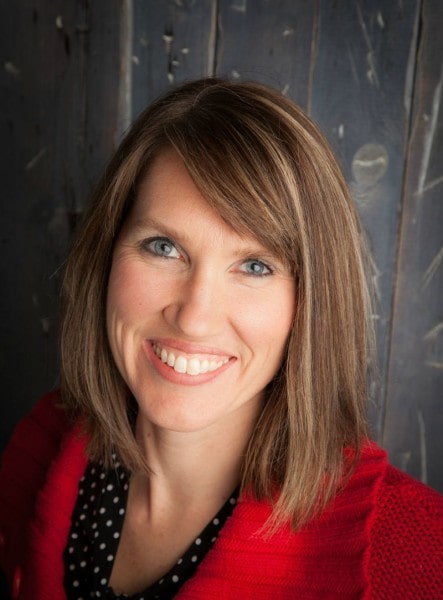Were it not for the Family Proclamation, I might not have children. I did not see myself as a mother, and I certainly didn’t feel like my gifts and talents were best geared toward motherhood. I was afraid I would be a bad mom, and I was pretty sure I wouldn’t like it. I set out to better understand the nuances of doctrine that were like missing puzzle pieces, maybe to uncover within myself some hidden magical gene that other women had who always wanted to birth and snuggle babies. I’m not sure I ever found the gene, but I did find a testimony of a God who knows me and knows who I can become. I read and pondered the Family Proclamation and I came to know that the principles it declared, even the hard ones, were true.
In our world today, we enjoy so many freedoms and opportunities, and we are blessed to believe that we can become whatever we want to be. This is a wonderful truth, and the Family Proclamation reinforces our divine potential and eternal destiny; however, it also outlines some specific gender roles and duties and warns that we will be held responsible before God for the discharge of these duties. It is easy to see the tension that can result when individuals try to balance desires, goals, and opportunities with divine direction and specific, prophetic counsel. Some may feel that their own circumstances are not compatible with the solemn declaration. Perceived gaps between reality and the ideal may lead to feelings of confusion, longing, resistance, disappointment or guilt. I believe that in those difficult and humbling tensions we can really seek and come to know the Lord’s will for us. As I’ve worked through many similar inner conflicts, here are a few things I’ve learned:
Truth is taught in broad patterns to help us understand Heavenly Father’s plan.
Prophets teach us the mind and the will and the word of God. They expound doctrine and testify of principles that, if obeyed, will protect us from sin and from sorrow. They speak to the whole church, and even to the whole world. Elder Jeffrey R. Holland once explained, “Now, I hope this helps you understand why we talk about the pattern, the ideal, of marriage and family when we know full well that not everyone now lives in that ideal circumstance. It is precisely because many don’t have, or perhaps have never even seen, that ideal and because some cultural forces steadily move us away from that ideal, that we speak about what our Father in Heaven wishes for us in His eternal plan for His children.” The Family Proclamation is no exception to this claim; it lays forth the pattern of marriage and family that will bring about God’s plan for his children, prepare us for our divine destiny, and protect our society from calamity and disintegration. It solemnly declares truth, but acknowledges within its own pattern that “circumstances may necessitate individual adaption.” This leads to a very important complementary point:
We can receive personal revelation to understand Heavenly Father’s will for us.
Sister Julie Beck taught that “The ability to qualify for, receive, and act on personal revelation is the single most important skill that can be acquired in this life.” If our own circumstances seem to be at odds with the exhortations in the Proclamation or with any other prophetic counsel, the best way for us to know how to reconcile the conflict and a desire to be obedient is to earnestly seek the Lord’s will. We must be careful to do so in good faith, sincerely striving for revelation and understanding. We do ourselves and God a disservice when we simply brush off counsel and say, “Well, it just feels right for me to do [whatever we choose that is different than what is being asked of us.]” Personal revelation—really coming to an understanding of what Heavenly Father wants—requires work. It requires study. It requires humility. And it requires a lot of soul-searching prayer. Notice that Sister Beck’s definition of personal revelation requires the ingredients of qualifying for, receiving, and acting. On another occasion, she mentioned that one issue many women struggle with is the question of whether or not to work outside of the home. When considering the divine roles outlined in the Proclamation, this can be difficult to navigate, but she warned that we must not allow our own comforts and wishes to override what the Lord asks us to do. “There are many, many places where if our women don’t work, they don’t eat. So of course they have to work. The question of whether or not to work is the wrong question. The question is, “Am I aligned with the Lord’s vision of me and what He needs me to become, and the roles and responsibilities He gave me in heaven that are not negotiable? Am I aligned with that, or am I trying to escape my duties?” Those are the kinds of things we need to understand. Our Heavenly Father loves His daughters, and because He loves us and the reward at the end is so glorious, we do not get a pass from the responsibilities we were given. We cannot give them away. They are our sacred duties and we fulfill them under covenant.” Not every answer is a cookie-cutter answer, but the key is to truly align ourselves with God’s will and to earnestly seek to meet our covenants and responsibilities to the best of our ability.
Because of the atonement of Jesus Christ, grace is available to us when our heartfelt desires and efforts fall short.
I recently rode in the car with one of my aunts. She was giving me updates on all of her children and commented that one in particular was struggling. She went on to lament that many years ago she had to return to work and feared that maybe it had affected negatively this child. She sighed and said, “So there are some gaps there.” I immediately said, “Gaps are what grace is for,” and I could feel that it was true. When we do our best to obey principles, follow God’s will for us and our families as given to us through personal revelation, balance all our willingness to obey with the tricky, sometimes derailing circumstances of mortality—before and during and after all of that, we have access to the atonement of Jesus Christ. He can forgive us where we make mistakes and he can bless us and our families where there are gaps we just can’t fill ourselves. It is truly an amazing enabling power that “so fully he profers [us].” We need to embrace that grace as we deal with our own gaps and we need to extend grace to others when their lives and circumstances don’t fit perfectly into the pattern or expectation we perceive. Give ourselves and one another room for adaption, revelation, and when necessary, forgiveness.
As a hesitant newlywed, I had to navigate this process. After I truly prayed to know God’s will, what came to me was the important revelation that the principles of the Family Proclamation were not just for other people who were better at mothering, but they were also for me. This was an important understanding that I needed, and it came with enough promise of His grace that I felt the courage I needed to tackle the possibility of parenthood. I had three beautiful children, and I found out that there actually were some divine, magical genes inside of me that allowed me to love them and experience joy as their mother. I also found that I was right about the fact that I sometimes would not like it, but the Lord has not abandoned me in that either. He walks beside me as I strive to live His pattern and seek His will for me and my family. I have seasons where I feel Him guiding me to do things that pull me just a little bit from my family, but then there are other times, where if I’m paying attention, He nudges me back and asks me to sacrifice some things for eternal reasons. Revelation and grace are the keys that help me to access the promised blessings that come from His plan—both for all of His children and for me—as outlined in the Family Proclamation.
 Stephanie is the “because I said so” boss of three spirited children. Her family lives in Utah even though she swore they never would. She occasionally teaches religion classes at BYU, at EFY, and at BYU Campus Education Week, and every once in a while she writes a book, like Covenant Motherhood. Stephanie used to blog prolifically at Diapers and Divinity, but now she blogs pathetically at Word to the Wise. She also likes naps and milk chocolate more than she likes most people. (Sorry.)
Stephanie is the “because I said so” boss of three spirited children. Her family lives in Utah even though she swore they never would. She occasionally teaches religion classes at BYU, at EFY, and at BYU Campus Education Week, and every once in a while she writes a book, like Covenant Motherhood. Stephanie used to blog prolifically at Diapers and Divinity, but now she blogs pathetically at Word to the Wise. She also likes naps and milk chocolate more than she likes most people. (Sorry.)
Be sure to visit We Talk of Christ and A Thing Called Love for more articles celebrating the 20th anniversary of The Family Proclamation! Don’t forget one easy way to share your testimony of the Proclamation and join the celebration is to share your photos on social media using the hashtag #ILovetheFamilyProclamation and explain why.



I love the reminder to seek the ideal and then pray for personal revelation, and the trust God to fill in the gaps. Such comforting doctrine. Great post! Thank you!
Such a lovely message. I’ve been following your blog for years now and appreciate the positive, faith building testimony you share. Keep up the good work sweet lady!